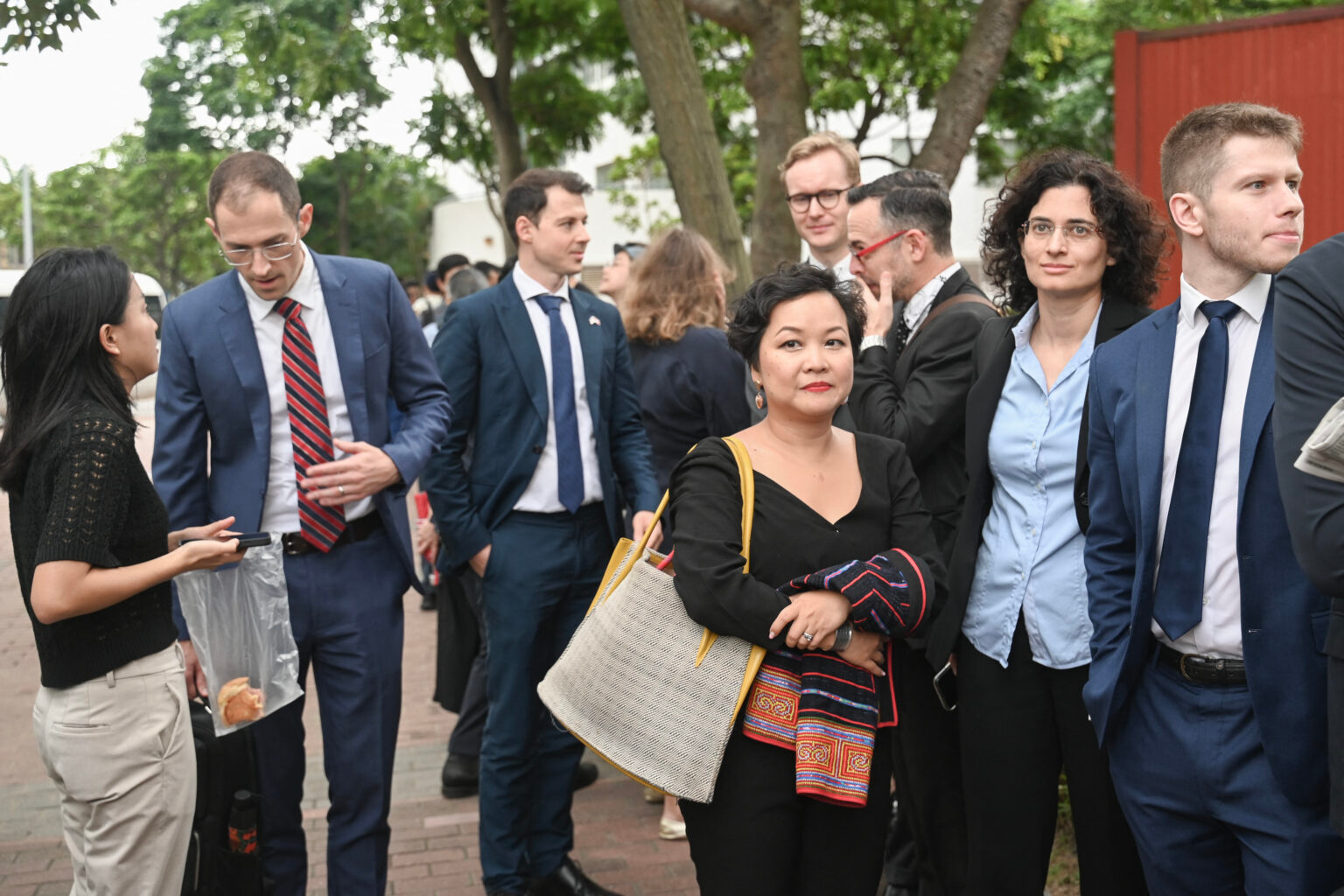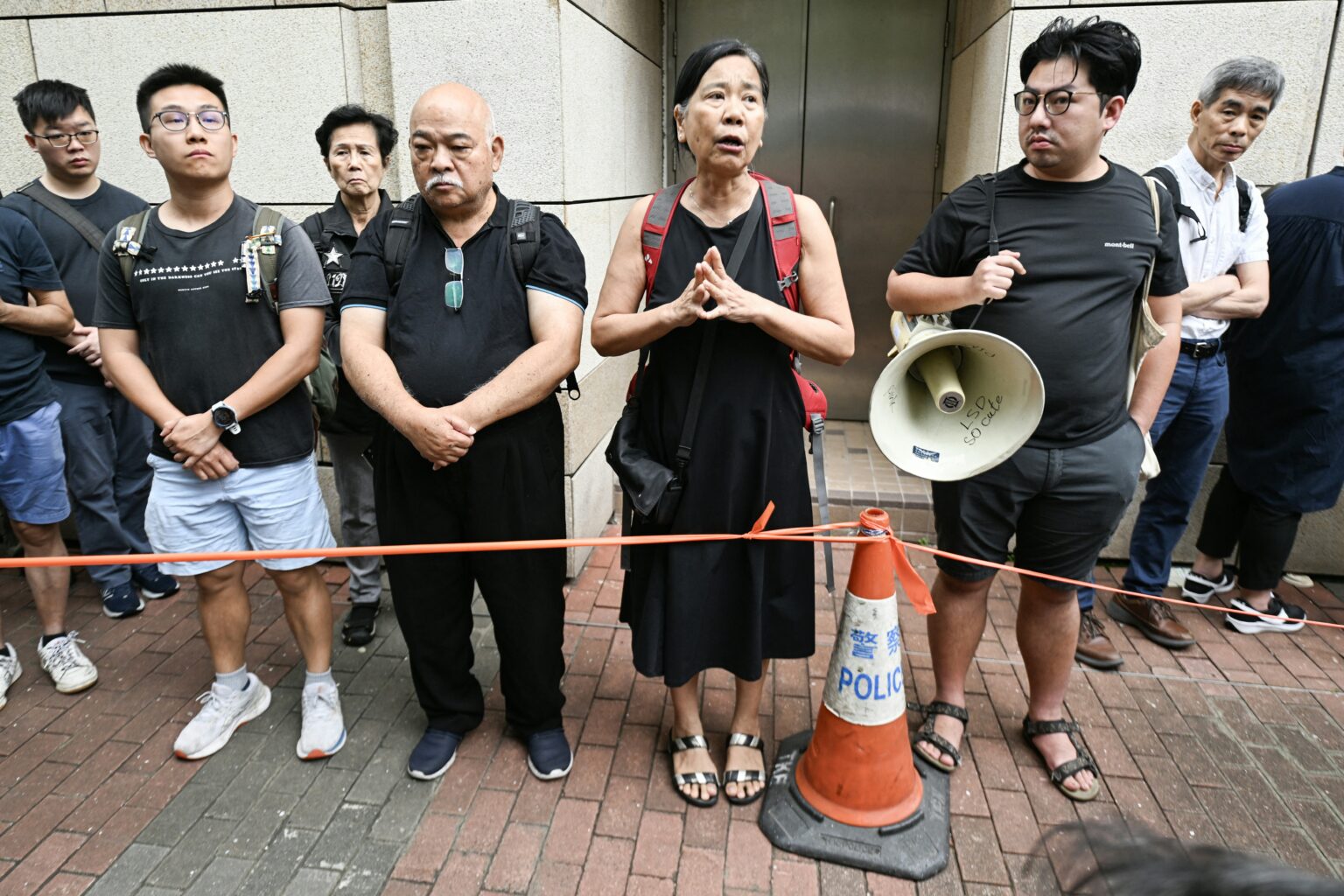
In a landmark decision on Thursday, a Hong Kong court convicted 14 pro-democracy activists in the city's largest national security case to date, reflecting Beijing’s intensified crackdown on dissent. Among those found guilty were former lawmakers Leung Kwok-hung, Lam Cheuk-ting, Helena Wong, and Raymond Chan. They now face potential life sentences when the court reconvenes for sentencing. Meanwhile, former district councilors Lee Yue-shun and Lawrence Lau were acquitted by the court, composed of three government-approved judges.
The convicted activists were part of a group of 47 democracy advocates prosecuted in 2021 for their participation in an unofficial primary election. Prosecutors argued that the primary aimed to secure a legislative majority to paralyze Hong Kong’s government by vetoing budgets, a tactic they claimed was intended to force the resignation of the city’s leader.
In a summary of the verdict, the court stated that the defendants had pledged to use their legislative power to veto the budgets, which would have significantly disrupted the functioning of the Hong Kong government. This, the court argued, constituted a serious interference with governmental duties.
The trial has been seen as a test of the national security law imposed by Beijing in 2020, which has been used to suppress public dissent and limit free speech and assembly in Hong Kong. This law, introduced following massive anti-government protests in 2019, has led to the prosecution, arrest, or exile of numerous pro-democracy activists.
Of the 47 activists initially prosecuted, 31, including prominent figures like legal scholar Benny Tai and former student leader Joshua Wong, admitted to conspiracy to commit subversion, hoping for shorter sentences. The 16 others, who pleaded not guilty, faced a non-jury trial.
On the day of the verdict, Chan Po-ying, leader of the pro-democracy League of Social Democrats and wife of convicted former lawmaker Leung Kwok-hung, was arrested alongside three other party members for attempting to protest at the court. Diplomatic representatives from the United States, Australia, and Britain, as well as numerous local supporters, were present outside the heavily guarded court to witness the proceedings.

Lawrence Lau, one of the acquitted defendants, emphasized that the focus should remain on the convicted activists and the broader implications of the verdict. "If there's any ‘star’ in the case, the judgment should be ‘the star’ because it set out the logic and perspectives of the judges. This is part of our rule of law,” he stated.
The unofficial primary election in June 2020, which led to the current prosecutions, aimed to unify pro-democracy candidates for the official legislative election. It saw a remarkable turnout of 610,000 voters, over 13% of Hong Kong's registered electorate. However, the government postponed the legislative election, citing the COVID-19 pandemic, and subsequently overhauled electoral laws to increase pro-Beijing representation and diminish the influence of pro-democracy candidates.
This case and the broader use of the national security law illustrate the severe limitations now placed on political opposition in Hong Kong. While Beijing and the Hong Kong government assert that the law has restored stability, critics argue that it has effectively dismantled the city’s political freedoms and civil liberties promised under the "one country, two systems" framework established during the 1997 handover from Britain to China.











